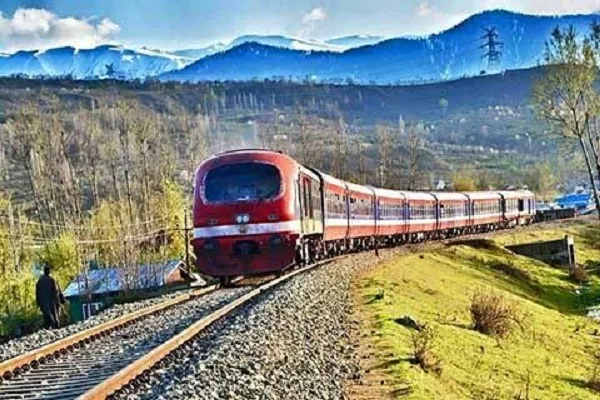The inauguration of the railway line connecting Kashmir to the rest of India marks a transformative moment in the region’s history. This development is poised to bring significant changes to the daily lives of the common people in Kashmir, impacting various facets such as economy, mobility, healthcare, education and social integration.
Firstly, Kashmir’s economy is predominantly agrarian, with horticulture playing a pivotal role. The region is renowned for its apple production, contributing significantly to India’s fruit basket. The introduction of the railway is expected to streamline the transportation of perishable goods, reducing transit times and spoilage. This improvement will enable farmers to access national and international markets more efficiently, enhancing their income and reducing financial losses caused by road delays.
Secondly, tourism is a vital sector in Kashmir, attracting millions annually to its picturesque landscapes and cultural heritage sites. Also, enhanced railway connectivity will boost tourist inflows by making travel more affordable and convenient. This surge is expected to generate employment opportunities in hospitality, handicrafts and related industries, thereby contributing to the overall economic development of the region. The construction phase of the railway project generated employment for thousands, stimulating the local economy. Post-completion, the operational phase is expected to create jobs in maintenance, operations and ancillary services, providing stable income sources for many families. Additionally, improved connectivity is likely to attract investments in various sectors, further expanding employment avenues.
Currently, road travel from Jammu to Srinagar takes approximately 6-8 hours, often affected by weather and landslides. The introduction of the railway is expected to provide a safer, faster and more affordable alternative. This improvement will benefit students, patients and traders by offering reliable and cost-effective transportation options. Improved connectivity will facilitate easier access to advanced medical facilities in major cities, ensuring timely treatment for patients requiring specialised care. Similarly, students aspiring to pursue higher education in reputed institutions across India will face fewer logistical challenges, broadening their academic horizons. Students aspiring to study in reputed institutions across India will face fewer logistical challenges.
The railway is expected to foster greater cultural exchange between Kashmir and other parts of India, promoting national integration. Improved connectivity will enable more frequent interactions among diverse communities, enriching the social fabric of the region. Enhanced mobility can have a profound impact on women’s empowerment by providing them with greater access to education, employment, and social networks. This development is expected to lead to increased participation of women in various socio economic activities, contributing to gender equality.
The railway line holds strategic significance by enhancing military logistics, ensuring swift movement of troops and supplies to border areas. This development is expected to bolster national security and contribute to a more stable environment for development. While the railway project brings numerous benefits, it is essential to address environmental concerns such as deforestation, soil erosion and disruption of local ecosystems. Implementing eco friendly construction practices and continuous environmental monitoring is crucial to mitigate these impacts.
Concerns have been raised about land acquisition for the railway tracks, particularly in fertile regions where residents fear the loss of agricultural land and livelihoods. Addressing these concerns through transparent dialogue and fair compensation is essential for the project’s success. There are apprehensions that the new railway link may reduce the Valley’s dependence on Jammu city, potentially affecting its hotel and transport businesses. However, enhanced connectivity will benefit both regions by boosting trade and tourism.
The arrival of the train in Kashmir symbolises a new era of connectivity and development. For the common man, it brings the promise of economic growth, improved mobility, and enhanced access to services. However, balancing these benefits with the preservation of agricultural lands, environmental sustainability and cultural integrity remains a critical challenge. A holistic approach that considers the aspirations and concerns of Kashmir’s residents will ensure that the railway serves as a conduit for inclusive and sustainable development.


